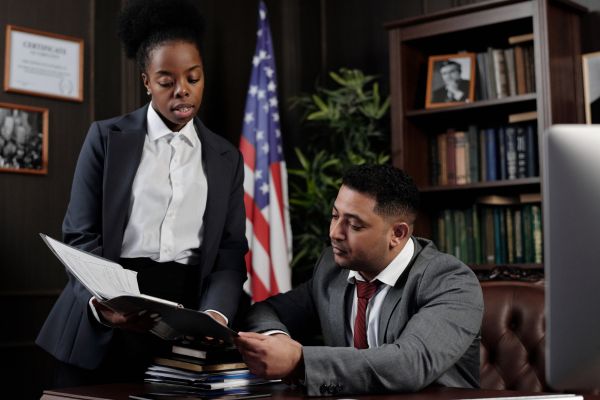The function of a corporate paralegal is pivotal in the ever-changing realm of corporate legal affairs, offering vital assistance to legal operations in corporations. Professionals in this field are essential to guaranteeing legal compliance and upholding the integrity of the corporate legal framework, from drafting important legal documents to helping with corporate governance issues.
Corporate Paralegal Job Description
A corporate paralegal is someone who works on corporate law matters under the supervision of licensed attorneys in a law-related setting. Corporate paralegals do not practice law, as they are not licensed attorneys, but they help in many aspects of corporate transactions, such as filing Certificates of Incorporation, helping maintain corporate record books and helping prepare the paperwork needed for one company to acquire another company. A corporate paralegal is also sometimes called a corporate legal assistant. Corporate lawyers are typically very busy professionals and they rely on corporate paralegals to assist them as much as possible in helping get the work done within the bounds of legal and ethical rules.
Corporate Paralegal Duties and Responsibilities
- Conduct legal research and identify relevant legal articles, statutes, regulations, and other legal sources
- Prepare legal documents, such as motions, briefs, pleadings, and contracts
- Maintain dockets with accuracy and efficiency
- Ensure all legal documents are filed in a timely manner
- Assist with the preparation of subpoenas and deposition notices
- Respond to document requests and subpoenas
- Prepare and review corporate documents, including bylaws, minutes, resolutions, and contracts
- Assist attorneys with document production and discovery
- Monitor deadlines and ensure compliance with applicable laws and regulations
Where do corporate paralegals work?
In theory, any business can hire corporate paralegals—the practical hurdle to this is for the organization to have a significant enough business need to employ their own in-house legal team instead of seeking outside help. Those who do typically have a lot of resources at their disposal.
Large companies and global corporations have the sort of budgets to create and employ their own in-house legal teams.
Government entities and regulators also often have corporate paralegals on staff to assist their internal legal teams.
They might also work with agencies like the Patent Trademark Office or the [Securities and] Exchange Commission.
Additionally, law firms—while not quite as easily overlooked as employers—are a common landing spot for corporate paralegals, particularly for firms that place an emphasis on business law.
How To Become a Corporate Paralegal
In this section, we’ll look at educational and skill-related requirements for anyone who wishes to become a corporate paralegal. In addition, we’ll present some interview questions candidates applying for corporate paralegal jobs can expect.
Educational Requirements
In terms of education, most businesses look for candidates with at least an associate’s degree in paralegal studies or a bachelor’s degree in any field, accompanied by a paralegal certificate.
According to the National Association of Legal Assistants, having completed an internship as part of your paralegal education will also help you stand out among the competition, so keep this in mind when making your education decisions.
For example, business administration is a good major choice and educational option for those planning to use their legal education in large corporations.
Skills
Naturally, to be able to perform corporate paralegal duties, one needs to possess a set of specific skills. Some of the main skills a paralegal aspiring to work in the corporate sector should have are:
- Multitasking ability
- Organizational skills
- Attention to detail
- Excellent reading comprehension
- Strong written and oral communication skills
- Legal research proficiency, ability to conduct independent research
- Microsoft Office Suite proficiency
Conclusion
In conclusion, the role of a corporate paralegal is not only vital but continually evolving. As corporations navigate complex legal terrains, these professionals remain indispensable in ensuring legal compliance and contributing to the overall success of the organization.






